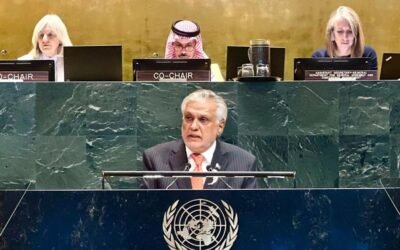The nexus between weak governance, pervasive corruption, and the absence of basic services in Pakistan’s peripheral regions forms a critical breeding ground for radicalization and insurgency. In areas like parts of Balochistan and the erstwhile Tribal Areas, this institutional fragility directly fuels the appeal of extremist narratives and armed groups, as non-state actors fill the void left by an absent or ineffective state presence.
Governance Deficits and the Appeal of Extremism
In Pakistan’s remote and marginalized regions, governance deficits are stark and directly correlate with the rise of extremist narratives and armed groups. In areas like Balochistan, the state’s presence has often been characterized by an over-reliance on security operations and a corresponding neglect of administrative and developmental needs.
This creates a vacuum where basic services like healthcare, education, clean water, and justice are either severely lacking or non-existent. Without legitimate state institutions fulfilling these fundamental roles, local populations experience a profound sense of alienation, injustice, and state neglect.
Into this void step non-state actors, including extremist and insurgent groups often capitalize on the governance gap by providing alternative forms of “justice” (albeit often brutal), rudimentary social services, or even a sense of community and identity that the state has failed to offer.
They exploit local grievances, such as economic deprivation, political disenfranchisement, and perceived exploitation of resources, to recruit disillusioned youth. The absence of effective and empathetic state presence allows these groups to embed themselves within communities, gain local legitimacy, and propagate their narratives as a viable alternative to a distant, unresponsive, or oppressive state.
For instance, in parts of Balochistan, nationalist insurgent groups and religiously motivated extremists have both found fertile ground among populations feeling marginalized and neglected by the federal government.
Similarly, in the former FATA regions, before their merger with Khyber Pakhtunkhwa, the lack of formal judicial systems and administrative structures allowed tribal elders and, subsequently, extremist groups to exert significant control, often offering quick, albeit harsh, justice where state institutions were absent.
You May Like To Read:
Corruption and the Erosion of Trust
Pervasive corruption acts as a corrosive force, directly eroding public trust in state institutions and inadvertently boosting the appeal of extremist groups. In Pakistan’s peripheries, corruption is not merely an economic crime; it’s a profound governance failure that directly impacts daily lives.
Resources allocated for development projects, infrastructure, and basic services often disappear due to embezzlement and kickbacks, leaving communities without the promised benefits. This systemic corruption, from low-level bribery for permits to large-scale graft in major projects, creates a perception that the state apparatus is not only inefficient but actively predatory, serving only the interests of a corrupt elite.
When state representatives like police, civil administrators, or even development workers are seen as corrupt, it alienates the local populace and delegitimizes the state’s authority. This vacuum of trust is then exploited by extremist and insurgent groups.
They often present themselves as incorruptible, upholding a strict moral code, and offering a form of “justice” that, while harsh, is perceived as impartial compared to the venal state system. Their propaganda frequently highlights the state’s corruption as evidence of its illegitimacy, portraying themselves as the true champions of the people against a corrupt establishment.
This narrative resonates deeply with populations who have experienced firsthand the debilitating effects of corruption, making radical ideologies more attractive as an alternative to a state they no longer believe in.
Lack of Basic Services: A Catalyst for Radicalization
The glaring absence of basic services in remote and marginalized regions serves as a powerful catalyst for radicalization and insurgency. While the state focuses on security measures, the neglect of fundamental human needs creates a desperate environment ripe for exploitation.
Communities lacking access to education, healthcare, clean drinking water, and economic opportunities become susceptible to alternative narratives that promise a better future, even if it comes at a violent cost.
In areas like the merged districts of Khyber Pakhtunkhwa, limited access to quality education often leaves youth vulnerable to extremist indoctrination in unregulated religious seminaries that may fill the educational void.
The lack of healthcare facilities means treatable diseases lead to preventable deaths, fostering resentment against a state perceived as uncaring. Economic deprivation, exacerbated by the absence of state-led development initiatives or equitable resource distribution, drives young men towards armed groups who offer a livelihood, even if it’s through illicit means.
The very fabric of society weakens without these basic services, leading to a sense of hopelessness and a willingness to embrace radical solutions. When the state fails to provide for its citizens’ most fundamental needs, it effectively cedes moral and physical space to non-state actors who are willing to step in, thus allowing them to cultivate loyalty and expand their influence.
You May Like To Read: Overview of Pakistan`s Key Strategies in Climate Response




























